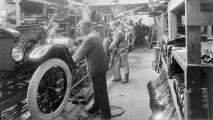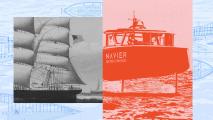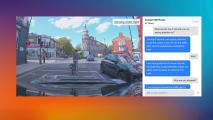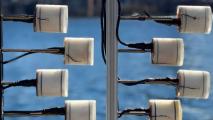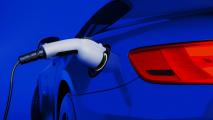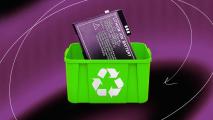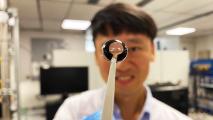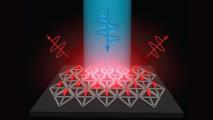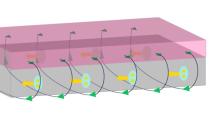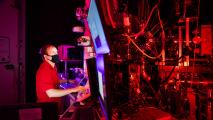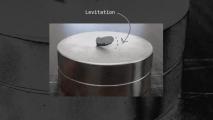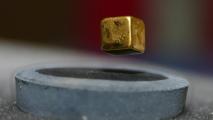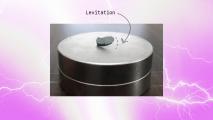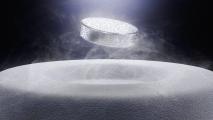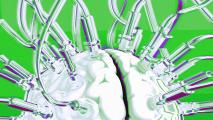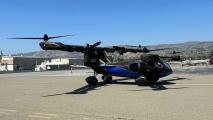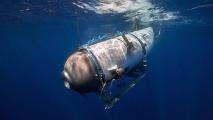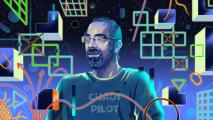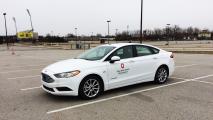
Materials
Though we live in a digital age, material science has shaped history—and it’s far from over. From quantum computers to fusion reactors, breakthroughs in materials will drive the next technological frontier.
More
Self-driving cars can now tell passengers what they’re thinking
AV startup Wayve has given its self-driving cars the ability to explain their decisions in conversational language.
Device offers long-distance, low-power underwater communication
Researchers create a device with piezoelectric transducers that enables battery-free underwater communication.
EV battery material breakthrough could cut charging times to 6 minutes
A new anode material could allow electric vehicle (EV) batteries to hold more energy and charge up faster.
Batteries made from recycled metal coming to US
Four companies are teaming up to make more eco-friendly lithium-ion batteries by injecting recycled metal into the supply chain.
SpinLaunch will hurl payloads into orbit, cutting the cost of launch by 20x
Rockets are big because they require enormous amounts of fuel. SpinLaunch’s method does away with much of that by hurling payloads into space.
New battery charged by tears will power smart contact lenses
An ultra-thin, flexible battery could lead to safe, comfortable smart contact lenses partially powered by our tears.
Arrays of quantum rods could enhance TVs or virtual reality devices
MIT engineers have used DNA origami scaffolds to create structured arrays of quantum rods, which could be incorporated into LEDs.
Simple superconducting device could dramatically cut energy use in computing
Scientists have created a simple superconducting device that could transfer current through electronic devices much more efficiently.
Scientists see metal heal itself for the first time
The first example of metal healing itself, repairing tiny cracks caused by metal fatigue, could lead to an engineering revolution.
Termite mounds inspire climate-friendly air conditioning
The intricate designs of termite mounds show how to maintain a comfortable climate, without using any power.
We’re in a “fog of war” as experts and amateurs rush to replicate superconductor LK-99
A group of Korean scientists are claiming the first superconductor that works in our everyday environment. Is it real?
Ask Ethan: Is LK-99 the holy grail of superconductors?
The holy grail of superconductor science is to find a superconductor at room temperature and standard pressure conditions. Is LK-99 the first?
Scientists rush to recreate room-temperature superconductor
Claims that a material called “LK-99” is a room-temperature superconductor are being put to the test by the scientific community.
Viral room-temperature superconductor claims spark excitement
South Korean researchers claim they’ve created a material capable of room-temperature superconductivity, a holy grail of science.
Brain-computer interfaces could let soldiers control weapons with their thoughts
Brain-computer interfaces raise many ethical questions about how and whether they should be used for certain applications — including war.
A $790,000 flying car is now cleared for takeoff
Air mobility startup Aska has begun flight testing the Aska A5, an SUV-sized flying car that costs an eye-watering $789,000.
Crab shells boost the lifespan of zinc-ion batteries
A zinc-ion battery containing crab shells could serve as the foundation for future renewable energy storage systems.
Innovation chief says “pressure test” your pet hypothesis. It’s guaranteed to be wrong.
His grandfather, a member of Oppenheimer’s atomic bomb team, foresaw the potential of nuclear energy to power cities – not destroy them. Today, Astro Teller is on a mission to harness innovation for good. Here’s how he’s doing it.
VR for self-driving cars makes training safer, more efficient
A system that acts like a virtual reality headset for self-driving cars makes training the vehicles safer and more efficient.
Get inspired with the most innovative stories shaping the world around us.
